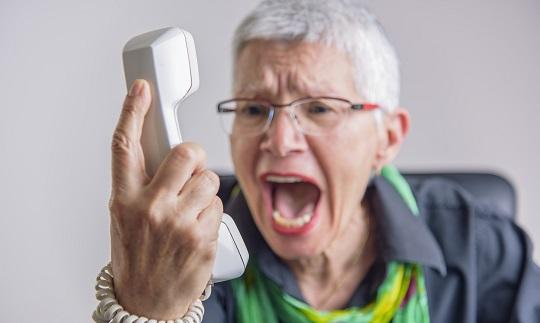Hostility After ACS Linked to All-Cause Mortality
Cardiac rehab, which is underutilized in the US, can help address some of psychological stress in these patients, says one expert.

Unfriendly, antagonistic, and negative attitudes—the hallmarks of hostility—are very common in patients who have had acute coronary syndromes, and such hostility is associated with an increased risk of all-cause mortality when compared to a sunnier disposition after ACS, according to the results of a new study.
The new findings, from an analysis of the Patient Response to Myocardial Infarction Following a Teaching Intervention by Nurses (PROMOTION) study, suggest that the “prevention and treatment of hostility might be an important treatment goal, particularly from a multidisciplinary approach,” according to lead investigator Tracey Vitori, PhD, RN (University of Tennessee, Knoxville), and colleagues. “Identifying and treating hostility needs to be a priority, along with optimizing physical and health behaviors to reduce cardiovascular risk.”
Martha Gulati, MD (University of Arizona, Phoenix), who wasn’t involved in the study, said there is solid evidence linking depression and anxiety with poor outcomes in patients with cardiovascular disease, but that the present study adds yet another wrinkle. While it didn’t show that hostility was linked with recurrent ACS, there are now a couple analyses showing hostility is associated with all-cause mortality.
“From that standpoint, it gives us some evidence—some strong evidence with these kind of numbers—that educating our patients about depression, anxiety, and hostility is useful,” said Gulati. “I don’t think we do very well in any of these aspects. . . . We need our entire team—our nurses, our nurse practitioners, and our physicians—to be asking about this and trying to help. We don’t have all the answers, and the next step would be an intervention [study]. But in the meantime, while we’re waiting for that, I think there are things we can be doing.”
Impatient, Irritable, or Negative
Writing in the European Journal of Cardiovascular Nursing, the researchers characterize hostility as a “cynical, antagonistic, resentful attitude toward others.” Marked by sarcasm, impatience, irritability, or negativity, hostility in past studies has been shown to be associated with cardiovascular disease, although there are inconsistencies in the research, according to Vitori and colleagues. And though the mechanism underlying the association is unknown, they note that hostility is associated with health behaviors that lead to the development and progression of atherosclerosis and coronary artery disease. For example, hostile individuals tend to be obese, smoke, abuse alcohol, and are less likely to adhere to a healthy diet.
The study included 2,321 patients (mean age 67 years; 68% men) enrolled in PROMOTION who were followed for 24 months for the evaluation of ACS and all-cause mortality. Researchers assessed hostility using the Multiple Adjective Affective Checklist (MAACL), which is designed to assess anxiety, depression, and hostility through a series of questions asking patients how they felt in the past week. Higher scores indicate greater hostility.
In total, 57% of those assessed were classified as hostile, and these ACS patients were significantly younger, had less education, were more likely to have diabetes, and were more likely to smoke.
During the 24-month follow-up, 8.3% of the study population had recurrent ACS and 1.6% of patients died. In multivariate analysis, hostility was an independent predictor of all-cause mortality (P = 0.03) but was not associated with recurrent ACS (P = 0.79). Each 1-unit increase in hostility assessed by MAACL was associated with a 52% increased risk of all-cause mortality. Older age and a history of previous MI also were independently associated with risk of all-cause death, while previous PCI and a history of hypertension were associated with an increased risk of ACS recurrence.
To TCTMD, Gulati said yoga, meditation, and tai chi might help reduce some cardiovascular risk factors, such as hypertension, and might even help people cope with a cardiovascular event. As in the present study, Gulati noted that patients with hostile personality traits tend to have a worse cardiovascular risk profile. She added that while it’s uncertain if the worse risk profile is responsible for the heightened risk after ACS, an intervention study aimed to reduce hostility would be beneficial.
“In the meantime, we don’t have to ignore it,” she said. “We can give them some tools to cope with it, just as we should be doing with people who have depression or anxiety.”
Hostility might be a reflection of stress, fear, or anxiety, added Gulati, noting that hospitalization for ACS provides ample reason for some patients to become angry or antagonistic. “In the US, you have a myocardial infarction and the bills start rolling in when you’re on the table in the cath lab,” she said. Patients leave the hospital with multiple medications, most of which they weren’t taking prior to hospitalization, and there are worries about affordability or concerns about side effects. These patients might also be isolated, with limited support in the community.
While some physicians might feel that counseling patients about hostility, or even depression and anxiety, is “outside their lane,” they can refer patients to those with expertise. Cardiac rehab specialists often take a broader approach to patient care by asking patients about their psychosocial well-being, but rehab is underutilized in the United States. Right now, only one in four eligible patients are sent to cardiac rehab, and these numbers are likely worse this year, after rehab was deemed nonessential during the peak of COVID-19 pandemic, said Gulati.
Michael O’Riordan is the Managing Editor for TCTMD. He completed his undergraduate degrees at Queen’s University in Kingston, ON, and…
Read Full BioSources
Vitori TK, Frazier SK, Biddle MJ, et al. Hostile predicts mortality but not recurrent acute coronary syndrome. Eur J Cardiovasc Nurs. 2020;Epub ahead of print.
Disclosures
- Vitori and Gulati report no relevant conflicts of interest.


Comments